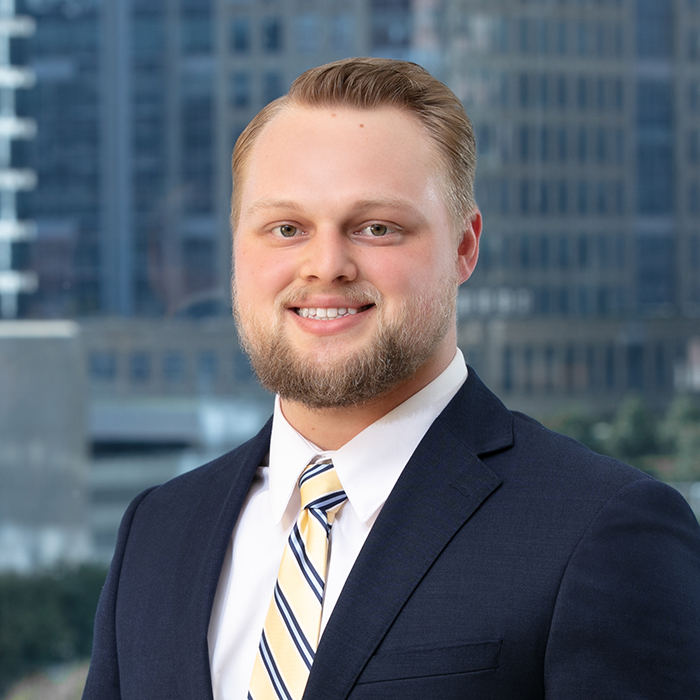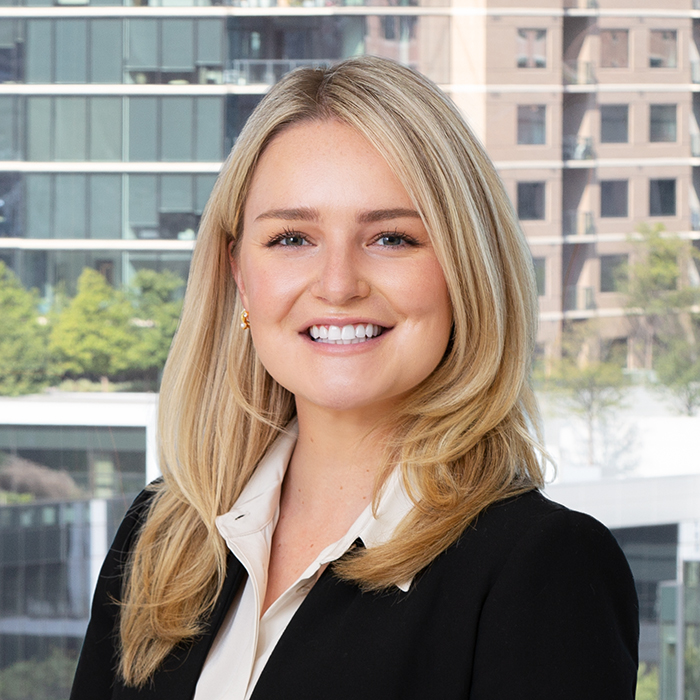By Paul C. Watler*
With the 2022 midterm elections around the corner and the 2024 presidential election less than two years away, candidates from all parties are intensifying efforts to reach voters through the media and, in more recent cycles, social networks.
While the campaigns heat up, often so do legal disputes over candidate messages. Candidates for political office may face threats of legal action relating to their campaign ads and literature. Sometimes, a threat of legal action is intended to get an opponent to pull an ad. Occasionally, courts are even asked to grant injunctions against campaign ads. Increasingly, news sites and social media networks have faced public pressure to monitor political speech on their platforms.
Candidates know they enjoy freedom of speech under the First Amendment, but often are unsure of the extent to which the law protects their campaign messages. Below is a list of frequently asked questions and answers related to protections afforded to candidates.
1. How much protection does the First Amendment give to a candidate’s speech?
Our constitution broadly protects free speech, and we have long recognized political speech as the most important recipient of First Amendment protection. There are a few principles to keep in mind:
- First, there can be no prior restraint of a candidate’s right to free speech. No judge or other government official may order that speech be restrained in advance or that it be submitted for pre-approval or censorship.
- Second, not all speech is constitutionally protected—even for political candidates. The categories of unprotected speech include defamation, incitement, obscenity, fraud, true threats, and fighting words.
- Third, defamatory speech may only be punished through a civil damage suit after it is published. If the statements refer to a public figure, a speaker only faces punishment if he or she acts with “actual malice” (knowing or reckless falsehood). Thus, First Amendment protection extends even to false speech when the inaccuracy arises from an innocent mistake or a well-founded belief in its truth.
- Finally, the First Amendment applies only to government action. Private companies generally have their own free speech rights, and may limit or promote whatever messages they prefer. Further, online speech platforms enjoy broad – but not unlimited – protections from speech liability, as discussed below.
2. How much control do traditional media, social networks, and other online media have over campaign speech?
Social media sites and news organizations are private companies that have First Amendment rights of their own. News organizations and, historically, social media sites have had broad discretion to determine whether to host candidate speech, and neither type of organization can ordinarily be compelled to transmit candidate speech. However, there are some key distinctions and nuances.
Traditional broadcast media companies adopt their own viewpoints and decide for themselves which speech to promote. Therefore, a broadcast company can choose whether or not to cover a candidate’s speeches, press releases, or campaign events. But if an FCC-regulated broadcaster allows space for one candidate to speak, it must also give the other candidate space to respond, in accordance with the equal airwave opportunity regulations. Paid advertisements have their own rules: a broadcaster that uses public airwaves must allow reasonable airtime for paid advertisements from legally qualified candidates, and may not edit or censor content therein. This obligation does not extend to print media companies, cable networks, or digital platforms, which may curate their own advertisements. It also does not apply to advertisements from third party sources, such as super PACs.
Broadcast companies and private news organizations can be held liable for voluntarily publishing defamatory information, because the speech at issue is attributable to them. Social media companies, on the other hand, do not face the same exposure to liability.
Social media companies and social networking platforms benefit from Section 230 of the Communications Act of 1934 (as amended through the Communications Decency Act of 1996), which states that social media platforms are “service providers,” and will therefore not suffer liability for any illegal speech posted on their platforms by third parties. Nevertheless, social media companies may engage in good faith efforts to restrict obscene, lewd, lascivious, filthy, excessively violent, harassing, or “otherwise objectionable” material. Thus, sites like Twitter and Facebook have wide discretion to take down user-generated content if it violates their stated community decency guidelines. For example, Twitter banned former President Donald Trump’s account on its platform following the events of January 6, 2021. Twitter did so as a private service provider under the Section 230 protection for restricting objectionable material.
The Gray Area of Social Media: When Politics and Democracy Collide »
The First Amendment and Social Media Commentary »
Lately, Section 230 protections have sparked much public debate. Just in the last few weeks, the White House renewed its call to revoke Section 230’s liability shield. Even more recently, the Fifth Circuit upheld a Texas statute that attempts to pare back social media companies’ discretion to censor users. The court found that a “freewheeling censorship right” is not included in a company’s inherent First Amendment rights. The Fifth Circuit’s decision seems to be at odds with an earlier Eleventh Circuit decision on a similar restriction enacted in Florida. Some members of the Supreme Court have indicated a willingness to revisit the legal interpretation and implications of Section 230, but the Court as a whole will need to weigh in on these issues.
In fact, the Court is slated to do just that. On October 3, 2022, the Supreme Court granted certiorari in Gonzalez v. Google, a case that will decide whether Section 230 protects internet companies that make targeted recommendations of information created by third parties. Specifically, the Court must decide whether YouTube (owned by Google) is liable for aiding and abetting an ISIS terror attack after the website’s video recommendation algorithm disseminated ISIS propaganda videos. Gonzalez has the potential to entirely change the scope of Section 230.
3. What election speech restrictions are in place for candidates who are public officials?
A candidate who is also a public official still has First Amendment rights to engage in political speech outside of his or her official role. However, a government employer may punish, or even fire, an employee for engaging in unapproved speech made in his or her official capacity. It may therefore be important for a candidate to expressly designate which speech is spoken in a personal, rather than governmental, capacity.
Also, a candidate may not use public funds or government influence to conduct political campaign activities. For example, the House Ethics Manual contains a general prohibition against using any official resources for campaign or political purposes, including even using a House office to make a press release video endorsing a candidate for president. Similarly, House Members’ press secretaries must go outside a congressional office in order to give an interview that is substantially devoted to campaign purposes. Analogous rules apply to state officials. In order to avoid any negative repercussions, candidates currently occupying political offices should take steps to clearly delineate between official and campaign speech.
4. When do negative campaign ads cross the line under libel law?
A candidate or campaign that publishes a statement knowing it is false or while entertaining doubts about its veracity may be subject to liability for libel. Conversely, a candidate or campaign that forms a well-founded belief in the truth of a statement and does not intentionally disregard contradictory information should enjoy First Amendment protection from damage suits. For example, Sarah Palin recently sued The New York Times for libel after the publication posted a story that falsely linked Palin’s campaign rhetoric to a 2011 mass shooting in Arizona. Despite admitting the story’s objective falsity, The New York Times’ mistake was protected from liability.
5. What if a campaign ad suggests or promotes violence against an opponent or group of individuals?
In June 2022, Eric Greitens, a former Missouri governor and U.S. Senate candidate, released an ad calling for the “hunting” of RINOs (Republicans In Name Only). Facebook removed the video for violating policies “prohibiting violence and incitement.” Twitter added a label that stated the Tweet violated Twitter Rules about abusive behavior, but that “it may be in the public’s interest for the Tweet to remain accessible.” Twitter’s labelling is protected both by its own First Amendment rights and by the Section 230 allowance for content regulation.
While social media companies can place whatever labels they want on suggestive speech, legal liability will only attach if the speaker engaged in actual incitement. Incitement is a high bar—in order for speech to constitute unprotected incitement, it must have been (1) intended to produce immediate illegal action, and (2) actually likely to do so. Mere satire and metaphor are virtually never incitement.
6. May my opponent get an injunction to stop my ads?
No. Prior restraints of speech – even speech that is false and defamatory – is not permitted under American law. A court can require a station to retract an ad only after a full trial has determined that the speech is actually defamatory.
7. Are TV stations and other media required to air campaign ads?
The Federal Communications Commission (FCC) requires broadcasters over public airwaves to accept political ads from all candidates regardless of content. Stations cannot reject or censor a candidate’s ad, and no additional charges may be levied against one candidate over another. The FCC may revoke any station license for willful or repeated failure to allow a legally qualified candidate to purchase reasonable amounts of time to broadcast an ad. Stations can still reject an ad that violates federal obscenity laws or ads from third-party organizations, such as Political Action Committees.
The FCC guidelines do not apply to streaming platforms like Hulu and Netflix. For example, Hulu stated this year that it would not run any political ads at all, regardless of their source. However, after facing immense public backlash, Hulu changed course and reversed its decision.
8. My opponent sent a lawyer letter to the TV station demanding that it stop running my ads. Is the TV station required to pull my ads?
No. Broadcast licensees who agree to air a political advertisement by a legally qualified candidate for state or federal office are bound by the “no censorship” provision of federal law. This provides that a station may not edit, substitute, or refuse to show an allegedly defamatory campaign ad. Only a court order after a full defamation trial can require a station to pull ads.
9. Can a candidate “block” citizens on social media?
As noted in the 2018 article “The First Amendment and Social Media Commentary,” a public entity or official cannot delete unwanted commentary or block others with whom they disagree on social media platforms like Facebook and Twitter, particularly if the blocking results in viewpoint discrimination. The crucial question is whether the account has been used for any official business at all. A public official who uses a personal social media account for official purposes has created a public forum, and therefore cannot limit speech or access to that content. For example, former President Trump was prohibited from blocking people on his personal Twitter account while in office. That ruling relied on Trump’s habit of using his personal account to speak on matters of public concern while he was the president.
On the other hand, purely private accounts are not public forums, and do not automatically turn into official accounts just because a person runs a campaign. For example, Missouri State Representative Cheri Reisch did not act illegally when she blocked a constituent on a Twitter account that she used only for campaigning. The court found that there is a difference between saying that you are the right person for the job and actually carrying out that job in an official capacity. As such, a pure campaign account is different from an official account. Keep in mind, though, that even a government official’s nominally private account can be used for official purposes, at which point it would violate the First Amendment to block followers based on viewpoint.
The Supreme Court has not directly weighed in on this issue, so things may change in the future.
The opinions expressed are those of the author and do not necessarily reflect the views of the firm, its clients, or any of its or their respective affiliates. This article is for informational purposes only and does not constitute legal advice.
For questions related to free speech rights related to U.S. elections, please contact Paul Watler or any member of the Media Law or Elections & Campaign Finance groups.
 Meet Paul
Meet Paul
Paul C. Watler is a board-certified civil trial lawyer who is widely recognized for “Bet-the-Company” cases, commercial litigation, First Amendment, and media law. He has successfully represented numerous newspapers, television stations, media companies, websites, and journalists in libel, anti-SLAPP (Texas Citizens Participation Act), public information, invasion of privacy, copyright, news gathering, and commercial lawsuits. Throughout his career, Paul has held leadership positions on the Dallas Bar Association Media Relations Committee, The University of Texas at Austin – Moody College of Communication Advisory Council, the Freedom of Information Foundation of Texas Board, and the North Texas Public Broadcasting (KERA) Board.
* Paul Watler prepared this article with assistance from Dallas associates Hannah Walsh and Alexander Leseney.
Meet JW
Election and campaign finance laws are often complex, highly regulated areas of law. At Jackson Walker, we guide our clients through the maze of modern election laws and regulations to help them achieve their goals while avoiding the legal and ethical pitfalls that are all too common in politics. For more information about our broad experience related to candidates, campaigns, and elections, visit our Elections & Campaign Finance page or direct questions to Dallas partner Jonathan Neerman.
Jackson Walker’s media law group is one of the most prominent in the country, representing major clients in the television, radio, newspaper, magazine, and publishing sectors. Our media practice began in 1905 with representation of the old Dallas Times Herald and has grown into a practice that is now national in scope. With more than 115 years of experience in media law, the firm handles litigation and transactional matters involving news content, employment, entertainment, intellectual property, advertising, and other related matters. To learn more about Jackson Walker’s century-long dedication to local and regional broadcasters and news organizations, visit our Media Law page.



